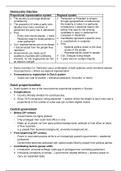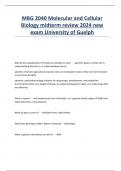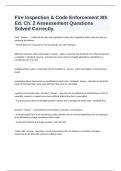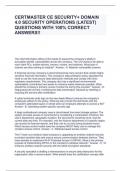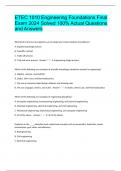Samenvatting
Social studies tvwo samenvatting (maatschapijleer) - Chapter 2 The Politics of the Netherlands
Dit is mijn samenvatting van chapter 2 The Politics of the Netherlands. Hier staat alle belangrijke informatie in die je moet kennen. Het is 22 pagina's lang met allemaal overzichtelijke tabellen, plaatjes, mindmaps, kleuren en stroomdiagrammen. Als je goed visueel leert met veel plaatjes en mindma...
[Meer zien]
